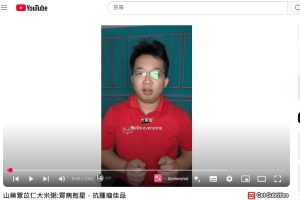Table of Contents
ToggleAre you really healthy? Nine TCM physical exam questions – check yourself now!
Author: Gu Yuxi Editor: Gu Yuxi Translator: Gu Yuxi
The content of the video was significantly reduced due to the target audience and time constraints. Here, it will be written in much more detail. The content of this topic was summarized by my friend and mentor, Dr. Xue Xiaozui, and then I personally researched various literatures to expand upon it.
Introduction: Western Medicine Check-ups Show “All Normal,” Why Do Serious Illnesses Still Arise Silently?
Have you ever had such doubts: At the beginning of the year, Xiao Li confidently completed a comprehensive Western medical check-up. Chest CT, blood biochemistry, liver and kidney function, tumor markers, and other indicators all showed “no abnormalities found.” However, less than a year later, during a follow-up check-up, the cold report shockingly stated a diagnosis of “early gastric cancer.” Or, like Xiao Wang, whose cardiovascular indicators such as blood pressure and blood lipids had always been controlled within the ideal range, was told he had “occult nephropathy” during a seemingly ordinary physical examination.
What went wrong? Why does the seemingly rigorous Western medical examination system sometimes miss things, allowing diseases that should have been detected early to develop silently?
Nine Major “Physical Examination” Standards of Traditional Chinese Medicine
Different from Western medical check-ups that focus on objective indicator testing, traditional Chinese medicine has a more macroscopic and detailed health assessment system. TCM does not solely rely on cold instrument data but emphasizes the holistic view, meticulously observing all aspects of the human body. This includes not only the details of daily life such as diet, drinking water, bowel movements, and sleep, but also covers changes in body surface temperature (hot/cold), the strength of mental state, and gender-specific physiological phenomena, almost encompassing nine dimensions of health.
This article will abandon obscure medical jargon and start from the physiological phenomena we perceive most in our daily lives, attempting to reveal a simple yet profound truth: true health is far more than what the cold “normal” or “abnormal” on a test report can completely define. It is contained in every subtle feeling of ours, waiting for us to experience and recognize it with our hearts.
I. Understanding What You “Eat”: Your Stomach and Intestines Are “Talking”
TCM observation of health often starts with the most basic details of daily life. “Eating,” seemingly simple, contains much information about the function of the spleen and stomach. Healthy “eating” is roughly reflected in the following aspects:
1. Good appetite, feeling hungry at mealtimes:
This is not just a natural physiological reaction. In TCM, it indicates that the ascending and descending of stomach Qi are in order, and the spleen and stomach’s function of receiving is normal. It’s a manifestation of stomach Qi rising and falling according to the normal rhythm, meaning your spleen and stomach can regularly receive and digest food, and their functions operate harmoniously. It’s like an employee who arrives at work on time.
2. Everything tastes delicious and appealing:
This indicates that the spleen and stomach’s taste function of transforming water and grains is normal. You are sensitive to the smell and taste of food, can distinguish various flavors and aromas, and have an appetite. It’s like a food connoisseur who can keenly sense the subtle differences in ingredients and enjoys them.
3. Feeling full and satisfied after eating, with the disappearance of hunger:
This shows that your stomach’s receiving and transformative abilities are good, and food can be digested and absorbed in time. The stomach can well accept food, and the spleen can effectively transform food into the energy and nutrients needed by the body. What you eat is not wasted but truly absorbed and utilized by the body.
4. Being able to eat properly without feeling blocked, bloated, or uncomfortable in the stomach afterwards:
This indicates that the Qi of the spleen and stomach flows smoothly, and the functions of transporting water, dampness, Qi, and blood are sound, without food stagnation or Qi stagnation. The Qi of your spleen and stomach circulates smoothly, and food and water can be transported smoothly without accumulation. It’s like a clear river where water flows freely without being blocked.
Your stomach and intestines are like a diligent “processing plant.” If it works well, you will feel hungry on time, everything will taste good, you will feel comfortable after eating, and your stomach won’t act up. This shows that all aspects of your “processing plant”—receiving, processing, and transporting food—are very efficient. Conversely, if abnormalities occur in the “eating” process, such as not wanting to eat, indigestion, or always feeling bloated, it may be your “processing plant” sending “signals” that require our attention.
II. “Drinking” Comfortably: The Body Is Conversing with “Water”
“Drinking water” is a basic need for maintaining life. In TCM, the state of drinking water also reflects the body’s internal balance. Healthy “drinking” is reflected in the natural responses to “thirst” and “drinking”:
1. Naturally feeling thirsty after not drinking water for a period of time:
In TCM theory, this is closely related to the distribution of body fluids and the function of the spleen and stomach. When the body’s fluids are gradually consumed due to activities, etc., and are insufficient to transport water upwards to the mouth, the body will send a “water shortage” signal, manifested as thirst. This indicates that the water circulation function is normal and sensitive. It’s like flowers and plants in a garden that wilt naturally when they lack water, reminding you to water them.
2. Drinking water effectively relieves the feeling of thirst:
Water enters the stomach and is transformed by the spleen and stomach. The stomach Qi receives powerfully, and body fluids are distributed to the body surface and the five internal organs, moistening dryness and replenishing fluids, thus relieving thirst. This shows that the spleen and stomach can normally receive and transport water, and distribute it to all parts of the body that need it, moisturizing dry tissues and organs. When water is replenished in time, the body’s “drought” is relieved, and the feeling of thirst naturally disappears. It’s like parched land receiving rain and regaining vitality.
Your body is very intelligent, like a precise “water pump” system. When your body lacks water, it tells you to replenish fluids through “thirst.” And when you drink water, if you quickly stop feeling thirsty, it means your “water pump” is working normally, sending water to all corners of your body. If you always feel dry mouth and throat, and drinking water doesn’t help, it might mean there’s a small problem with your “water pump” that needs attention.
III. “Defecating” Smoothly: The Intestines Are Reporting “Work”
Defecation is an important way for our body to excrete metabolic waste. In TCM, the state and habits of bowel movements also reflect the health of the intestines and even the whole body. Healthy “defecation” usually has the following characteristics:
1. Once a day, and relatively regular, with a shape like a ripe banana:
This indicates that your large intestine’s transmission function is normal, intestinal peristalsis is orderly, and metabolic waste can be excreted from the body in time. It reflects that the large intestine’s transmission is appropriate, Qi and blood circulation is smooth, and the transformation of water and grains is normal. Regular bowel movements are like cleaning up garbage on time every day, keeping the inside of the body clean. And “banana-like” stool suggests that the stool’s hardness and water content are appropriate.
2. Defecation is quick, without feeling strenuous or difficult:
Sufficient intestinal peristalsis (Qi of the large intestine), and good function of separating the clear from the turbid. This indicates that your intestines have sufficient power to smoothly push out feces without obstruction. It’s like a clear pipe through which waste can easily pass.
3. The color of the stool is slightly blackish-yellow:
Yellow is the normal color of food after being transformed by the spleen and stomach. Slightly blackish may suggest less stagnation in the intestines and that food has been relatively fully digested. Of course, diet also affects stool color; this observation is under normal dietary conditions.
Your intestines are like a conveyor belt whose daily task is to transport the body’s unwanted “garbage” out. If this conveyor belt runs well, you will regularly and easily excrete formed stool with a natural yellowish-brown color every day. This shows that your intestines are diligent and very efficient. If bowel movements are irregular, difficult, or the shape and color of the stool are strange, it may be that your “conveyor belt” has a problem that requires attention and observation.
IV. “Urinating” Smoothly: The Bladder Is Clearly Expressing Itself
The excretion of urine is another important way for the body to metabolize water and waste. In TCM, the color, frequency, and sensation of urination all reflect the functional state of the kidneys and bladder. Healthy “urination” usually has the following characteristics:
1. The color of urine is light yellow, neither too yellow nor too white:
This indicates that the Qi transformation function of your kidneys and bladder is normal, the body’s water metabolism is balanced, and waste is normally diluted and excreted. Neither too yellow nor too white indicates that there is no excessive heat or cold in the body, which is a normal and ideal internal environment.
2. Urinating about four times a day, and the urination process is smooth and forceful:
Sufficient bladder Qi transformation, and harmonious Qi circulation in the Du meridian and bladder meridian. This indicates that your bladder’s urine storage and excretion functions are coordinated, the Qi transformation function is sufficient, and it can forcefully excrete urine. Smooth and forceful urination is like a faucet that can be turned on and off freely with a smooth flow of water.
3. Being able to urinate immediately when the urge arises, without waiting:
Coordinated bladder Qi transformation and kidney Qi consolidation, without Qi stagnation or deficiency. This indicates that the bladder’s opening and closing functions are normal, the kidney Qi’s consolidating effect is good, and there is no Qi stagnation or weakness leading to difficulty in urination. Being able to urinate immediately when you want to means the “exit” is very smooth.
Your kidneys and bladder are like the body’s “water treatment plant” and “drainage pipes.” If they work normally, the excreted “water” (urine) will be light in color, the frequency will be about the same every day, and you can urinate smoothly when you want to, without holding it in uncomfortably. This shows that your “water treatment plant” and “drainage pipes” are operating well. If the urine color is very dark or cloudy, or the frequency of urination is too high or too low, urination is difficult, or you always feel like holding back urine, it may be that your “water treatment plant” or “drainage pipes” are sending signals that need attention.
V. “Sleeping” Soundly: The Body’s “Nightly Maintenance”
Sleep is an important time for the body to self-repair and adjust. In TCM, the quality and duration of sleep, as well as whether one dreams a lot, are closely related to the functions of the heart, liver, kidneys, and other internal organs. Healthy “sleep” is usually like this:
1. Being able to sleep straight through from falling asleep until dawn without waking up in between:
In TCM, this is seen as a manifestation of a stable mind (heart spirit), sufficient heart blood to nourish the mind, and sufficient liver blood with harmonious Qi and blood throughout the body. This is because when the heart stores the spirit and is stable, and heart blood is sufficient to nourish the spirit; when liver blood nourishes, Qi and blood are harmonious. It’s like home appliances with a stable power supply that won’t suddenly lose power.
2. Falling asleep around 11 PM and sleeping until around 5 AM the next morning, and rarely or never dreaming:
This sleep duration and timing align with the physiological rhythms of “peaceful sleep at the Zi hour (11 PM – 1 AM) and falling asleep at the Hai hour (9 PM – 11 PM),” which is conducive to the body’s Yin-Yang balance. Around 11 PM is the Zi hour, considered the time when Yin Qi is at its peak and Yang Qi begins to generate. Sleeping peacefully at this time helps nourish Yin. Few or no dreams suggest a stable mind without disturbance from heart and gallbladder fire, and without excessive thoughts causing agitation. It’s like charging a phone; charging at the right time allows for better energy recovery, and the charging process is not disturbed.
3. Not easily startled awake during sleep and rarely dreaming:
This further indicates a stable mind, relatively sufficient kidney essence, and a relatively balanced state of Yin and Yang in the body. Sound sleep is like a calm lake without ripples.
Sleeping is like charging the body. If you can sleep until you wake up naturally without waking up in between and rarely dream, it means your “charging” process is smooth, and your body gets sufficient rest and repair. Feeling sleepy when it’s time to sleep at night and waking up refreshed in the morning is like a phone with a full battery that runs smoothly. If you toss and turn and can’t fall asleep at night, or if you always dream and wake up easily after falling asleep, it means your “charger” might have a problem that needs adjustment.
VI. “Cold and Heat” Know Warmth and Cold: The Body’s Built-in “Thermometer”
Changes in body temperature often directly reflect the state of health. TCM observation of cold and heat not only looks at the numbers on a thermometer but also emphasizes the temperature sensation in different parts of the body. A healthy state of “cold and heat” is usually like this:
1.Feeling warm in the palms and soles, but not the scalding kind of hot:
TCM believes that the palms and soles are connected to meridians such as the pericardium meridian. Their warmth indicates that the heart Yang can normally spread and that there is no deficiency of heart Yin. It’s like a well-running engine that produces moderate warmth but doesn’t overheat.
2. The back of the hands doesn’t feel hot, and the forehead doesn’t feel feverish:
This suggests that the body’s defensive Qi (Wei Qi) and nutritive Qi (Ying Qi) circulate in an orderly manner, without external pathogenic heat invading the nutritive blood, and without affecting the upper Jiao (head). It’s like the body’s “defense system” operating normally without any “alarms” (fever) going off.
Overall, the body’s Yin and Yang are coordinated with each other. Defensive Qi is normally distributed on the body surface without carrying pathogenic heat, and nutritive Qi nourishes within the body without consuming Yin fluids. This is a balanced state where the body is warm where it should be warm and peaceful where it shouldn’t be hot. It’s like a warm and comfortable spring, with the warmth of the sun but not excessive heat.
Your hands and feet are like the body’s “small heaters.” Under normal circumstances, they should be warm and comfortable, especially the palms and soles. Other parts of the body, such as the back of the hands and the forehead, should feel normal in temperature, not feverish. This shows that your body’s “firepower” is evenly distributed, warm where it should be warm, cool where it should be cool, and the overall feeling is comfortable. If your hands and feet are cold or hot, or if other parts of your body feel abnormally hot, it means your body’s “temperature regulation system” might have a problem that needs attention.
VII. “Physical Strength” Abundant: The Body Is Full of Energy
Daytime activities require sufficient physical strength to support them. In TCM, the state of daytime spirit and physical strength largely depends on the function of the spleen, kidneys, and other internal organs, as well as the abundance of Qi and blood. A state of “very good physical strength” is usually like this:
1. Being energetic during the day and not easily feeling tired:
TCM believes that the spleen is responsible for the transportation and transformation of food essence, generating Qi and blood. If the spleen’s function is strong and Qi and blood are sufficient, then muscles and all tissues throughout the body can be fully nourished, naturally leading to vigorous energy. It’s like a car with a full tank of gas that naturally runs more powerfully.
2. Being spirited in doing things and not easily feeling fatigued:
In TCM, the kidneys are considered the “root of pre-heaven,” storing essence, which can generate primordial Qi (Yuan Qi), the most basic driving force for bodily activities. If kidney essence is sufficient, the generated primordial Qi will be sufficient, and a person will not easily feel tired and will have more endurance in doing things. It’s like a phone with a full battery that won’t easily run out of power.
3. Daytime energy should gradually become vigorous with the rising of the sun:
This aligns with natural laws. TCM emphasizes the unity of humanity and nature, believing that the body’s physiological activities should follow the laws of nature. During the day, Yang Qi rises, and the body’s Qi and blood also become active, so one should be energetic during the day. It’s like a sunny day when everything is full of vitality.
If you feel energetic all over during the day, are full of spirit, and don’t get tired easily, it means your body’s “energy reserves” are sufficient and can be well mobilized. It’s like a healthy young person who wakes up in the morning full of energy and can cope with the day’s work and life. If you always feel tired and weak during the day and can’t perk up, it may be your body indicating “energy deficiency,” requiring replenishment or adjustment.
VIII. Male Health: The Body’s “Barometer”
For men, certain specific physiological phenomena often reflect the health of their reproductive system and whether their overall Yang Qi is sufficient. Healthy men usually do not experience scrotal dampness and lower back and knee weakness, and they have morning erections every day.
1. No scrotal dampness and lower back and knee weakness:
TCM believes that scrotal dampness indicates kidney Yang deficiency.
The lower back is the “mansion of the kidneys,” and lower back and knee weakness is often a manifestation of insufficient kidney Qi and lack of nourishment to the bones and tendons. The absence of lower back and knee weakness suggests relatively sufficient kidney Qi, and that the bones and tendons are nourished. It’s like the foundation of a big tree being stable, so it won’t shake.
2. Morning erection every morning:
Morning erection is considered a manifestation of sufficient kidney Yang, the Qi transformed from kidney essence nourishing upwards, and smooth Qi circulation in the Du meridian. The Du meridian is the “sea of Yang meridians.” When Yang Qi is sufficient, Qi and blood can smoothly reach the penis, resulting in erection. It’s like the morning sun, warm and full of vitality.
For men, if you feel your lower body is fresh and not damp, your lower back and knees don’t feel uncomfortable and weak, and your “little brother” greets the morning with vigor every day, this usually indicates that your “engine” (kidneys) has sufficient power, your body’s Yang Qi is also relatively sufficient, and your “lower body” is stable. Conversely, if you often feel scrotal dampness, weakness in the lower back and knees, and there’s no morning “action,” it might be a reminder that you need to pay attention to kidney health and overall Yang Qi.
IX. Female Health: The Body’s “Tidal” Rhythm
For women, menstruation and vaginal discharge are important aspects reflecting their physiological health. A normal menstrual cycle, moderate menstrual flow, absence of discomfort, and healthy vaginal discharge all indicate a woman’s bodily balance and harmony.
1. Normal menstrual cycle, moderate menstrual flow, no dysmenorrhea, no blood clots, no premenstrual symptoms like lower back discomfort or breast distension:
TCM believes this is related to the smooth flow of the Chong and Ren meridians, which govern the circulation of menstrual blood in women. If they are unobstructed, menstrual blood can circulate regularly.
Smooth Qi circulation, sufficient Qi and blood in the uterus without stagnation, will not lead to dysmenorrhea and blood clots.
The liver governs the smooth flow of emotions. When liver Qi is smooth, women will have relatively stable emotions before menstruation and will not experience premenstrual discomfort such as breast tenderness or lower back pain. It’s like flowers in a garden that can bloom on time in a suitable environment without pests or diseases.
2. Clear and transparent vaginal discharge during ovulation:
TCM believes this is related to the Ren meridian regulating the body’s Yin fluids and sufficient kidney Yin. Sufficient kidney Yin leads to abundant Yin fluids, so the vaginal discharge will be clear and moist. Without damp heat accumulating in the body, the vaginal discharge will not be turbid and yellow. It’s like clear spring water, clean and transparent.
For women, if your “period” arrives on time every month, the flow is appropriate, you don’t have abdominal pain during your period, there are no significant blood clots, you don’t feel lower back pain or breast tenderness before your period, and you have clear, watery vaginal discharge during ovulation, this usually indicates that your body is functioning smoothly internally, with sufficient and harmonious Qi and blood. It’s like the tides of nature, rising and falling regularly, with everything in harmony. If your “period” often doesn’t arrive on time, or if it makes you very uncomfortable, and your vaginal discharge is abnormal, it might be a reminder that you need to pay attention to your body’s balance.
Actionable Advice:
Please remember that true health is not just about the cold numbers on a medical report. It’s like the morning dew, delicately reflecting in your daily “eating, drinking, defecating, urinating, and sleeping,” and it’s also reflected in all aspects of how you feel the cold and heat of your body and your mental state.
Instead of passively waiting for illness to knock on your door, why not start today by actively integrating the wisdom of TCM health into your daily life? Consider doing a simple “self-check” every day, carefully experiencing the subtle signals your body sends. Let these “Nine TCM Physical Exam Questions” become your daily health guardian, a mirror reflecting your body’s state, helping you to discover potential imbalances earlier, so you can adopt a positive lifestyle to maintain your physical and mental well-being.
Pay attention to whether your appetite is good, whether drinking water quenches your thirst, whether your bowel movements are smooth, whether your sleep is sound, feel the changes in your body’s temperature, notice whether your daytime energy is sufficient, and whether women’s unique physiological rhythms are harmonious. These seemingly small daily occurrences are precisely the most genuine manifestations of bodily health.
Starting today, let’s pay attention to these “visible and tangible” health signals, move the line of defense for health forward, and not be someone who “realizes only after the event.” Your health is hidden in the details of your everyday life.
Disclaimer:
The experiences and insights shared above represent the author’s personal usage and understanding, and are provided for reference only as part of academic exchange. Please do not blindly replicate or apply them; any consequences arising from such actions are solely your responsibility. As individual constitutions vary, medication should be tailored accordingly. It is advisable to use such treatments under the guidance of a qualified physician. If you have additional experiences to share, comments and submissions are welcome.
If you appreciate my article, please give it a like.
If you are a generous and affluent individual, please consider making a donation!
Your recognition is my greatest motivation to continue writing—thank you very much!
USD Donation Button —
A RMB donation button is available below.
 微信赞赏
微信赞赏 支付宝赞赏
支付宝赞赏




